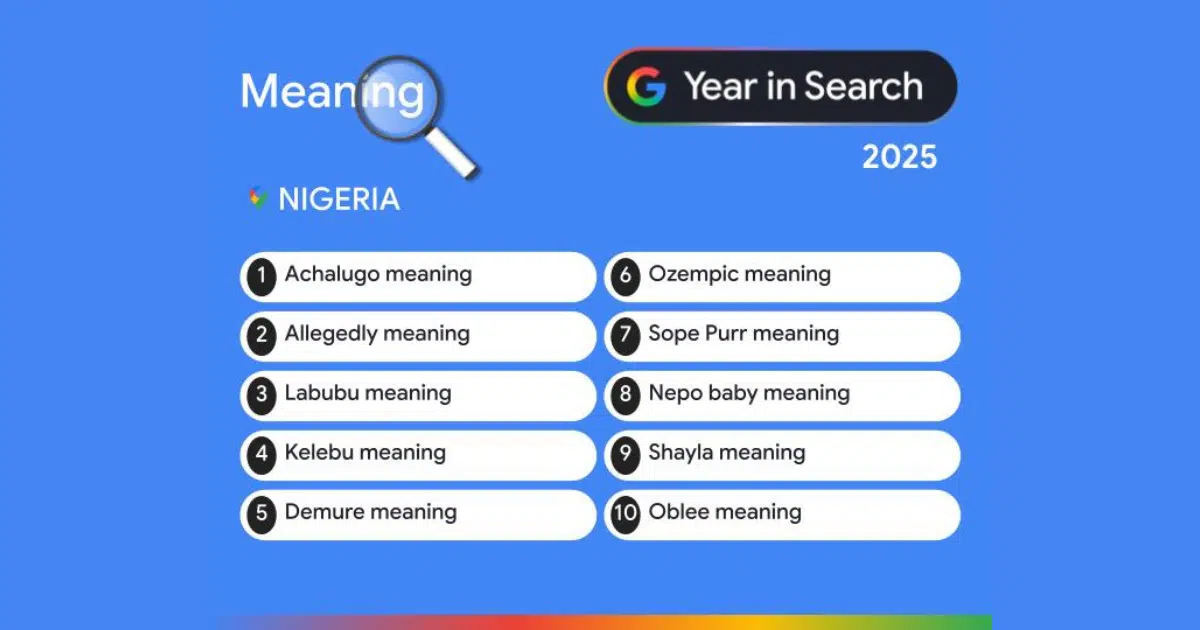In August 2024, Nigerian social media influencer Enioluwa Adeoluwa made his filmmaking debut, releasing the four-part high school drama All of Us on YouTube. The series has since racked up over 11 million views, underscoring YouTube’s growing role in Nigerian filmmaking.
Adeoluwa is among a growing crop of Nigerian filmmakers choosing to bypass traditional streaming giants like Netflix and Showmax, instead distributing their films directly on YouTube. This shift is driven by the platform’s flexibility and the ability to reach a global audience without gatekeepers.
Bolaji Ogunmola, a Nigerian actress and former reality TV star, joined this movement in February 2024. Initially using her channel for vlogs and lifestyle content, she transitioned to filmmaking with her debut movie, True Colors. Since then, Ogunmola has consistently released a new film every month.
“I can reach my audience directly,” she says. “There’s direct feedback if they enjoy the project or not. YouTube is a global platform; I can reach people anywhere in the world. That’s just amazing for me.”
Limitations of streaming platforms
While streaming services like Netflix and Showmax have gained popularity in Nigeria, they pose significant challenges for local filmmakers.
Both platforms have limited capacity and strict content curation standards, favouring high-budget productions or specific genres. This leaves many Nigerian filmmakers, especially those without industry connections, struggling to get their projects onto these platforms.
Netflix and Amazon Prime, two of the major streamers in the country, have been increasing the number of originals on their platforms. In addition, they work with local distributors, who often double as filmmakers to aggregate movies.
“A lot of Nigerian filmmakers have realised that they’re not among the 1% in Nollywood that the streamers would rather work with, so they’d rather go to a platform that doesn’t have barriers,” says Esse Akwawa, Head of Accelerate Studios.
“That’s what birthed everybody going on YouTube because they’ve seen that if you do your marketing right for YouTube, once you have the right cast, you have a good story, and you do your marketing right, you can monetise your YouTube page within three months without anybody saying you’re on a waitlist,” she adds.

Victoria Fakiya – Senior Writer
Techpoint Digest
Stop struggling to find your tech career path
Discover in-demand tech skills and build a standout portfolio in this FREE 5-day email course
YouTube also offers filmmakers full control over their earnings, unlike streaming platforms where distributors often take a significant cut. For first-time producers and those with smaller budgets, YouTube’s low entry barrier has become an attractive option.
For many actors and filmmakers, YouTube is more than just a distribution platform — it’s a financial lifeline. Ik Ogbonna, an actor who owns a YouTube channel, explains how the platform provides steady work and a direct pathway to financial stability.
“For actors, especially those who are hard-working and consistently producing content, YouTube has become a gateway to financial stability,” Ogbonna writes.
“In an industry where many struggled to find steady work, the platform allows them to control their career trajectory, providing opportunities to build and maintain a loyal fan base.”
Ogunmola echoes this sentiment, emphasising how YouTube fosters community engagement. When a technical issue delayed one of her recent uploads, she used YouTube’s Community section to communicate with fans, and the response was overwhelmingly supportive.

Nigerian filmmakers have often been criticised for telling subpar stories, but Akwawa insists that the industry lacks the funding to pursue ambitious projects while there isn’t a conducive environment for them to recoup their investments.
“A lot of filmmakers are now realising they can tell a good story and leave all the technicalities to Hollywood. We don’t have the budget to do an action film and do it without getting criticised, but we have access to our own stories, and we can tell them well.”
Imoh Umoren, another filmmaker, notes that YouTube provides Nigerian filmmakers with creative freedom, adding that streaming platforms often favour certain movie genres over others.
“I’m not saying the movie genres approved by the streaming platforms are not nice; I watch them myself, but the truth is there are so many types of films and many types of filmmakers. We can’t all make the same films,” he says.
Balancing quality and accessibility
Despite the advantages, some industry players worry that the flood of films on YouTube might lower the overall quality of Nigerian productions.
Ogbonna acknowledges that users will ultimately choose what content they want to consume but insists that every movie produced not only impacts the reputation of the filmmaker but influences perception of the industry as a whole.
He advocates for greater oversight, suggesting that filmmakers and actors should be members of the Directors Guild of Nigeria and Actors Guild of Nigeria to maintain industry standards.
“This ensures that individuals involved in content creation adhere to the professional and ethical guidelines that protect the integrity of Nollywood. The platform should not become an avenue for unqualified individuals to flood the market with subpar productions, as this can erode the trust audiences have in the Nollywood brand,” he says.
However, filmmakers like Umoren argue that YouTube’s low entry barrier encourages healthy competition, ultimately improving quality.
“I’ve seen some YouTube films that are cinema-worthy,” Umoren notes, adding that as audiences grow more discerning, demand for higher-quality productions will increase.
Ogunmola notes that actors are also affected by this shift as they are often overbooked.”You literally don’t have a balanced life because you are always working crazy hours because of the limited number of days to film. It’s a lot, really, because at some point you aren’t performing anymore, just churning out films, literally.”











